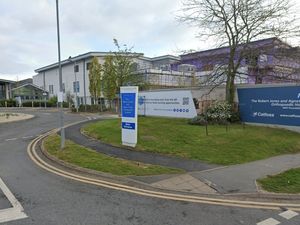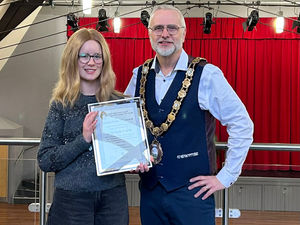Telford hospital bosses detail alternative food arrangements as RAAC discovery closes kitchen
Hospital bosses have detailed 'alternative arrangements' put in place in Telford after the discovery of potentially dangerous concrete.
Reinforced Autoclaved Aerated Concrete (RAAC) has been identified in the kitchen area at Princess Royal Hospital, closing both it and the restaurant.
After saying alternative meal arrangements had been put in place for patients and staff, bosses at Shrewsbury & Telford Hospital NHS Trust (SaTH), which manages the hospital, have given more details on what those are.
Patients on a normal diet will be receiving a choice of four vegetarian soups, a selection of sandwiches, a selection of cold meat and vegetarian salads, yoghurts, mousse, ice cream, fruit, cheese and biscuits and snacks.
Those with any dietary requirements will see no change in the menu, while younger patients on the children's ward will also have the options of fish fingers and chicken nuggets.
Caffe Bistro in the Women and Children’s Centre will be open throughout the week and vending machines will remain available.
Health bosses have said that the discovery means the usual catering service is temporarily unavailable for patients, families and carers.
Mark Hope, Interim Director of Estates for The Shrewsbury and Telford Hospital NHS Trust, said: “Reinforced Autoclaved Aerated Concrete (RAAC) has been identified in a kitchen area at The Princess Royal Hospital in Telford. As a result, the kitchen and restaurant have been closed.
“Patient and staff meals are continuing with alternative arrangements in place. We would like to thank our patients and staff for their understanding.
“The safety of our patients and colleagues is paramount. We are working closely with NHS England and following expert advice from the Institution for Structural Engineers to manage the RAAC at PRH safely, including daily inspections by our Estates team, and we have also joined the national RAAC programme. Our staff are being kept fully informed.”
RAAC is a lightweight material that was used mostly in flat roofing, but also in floors and walls from the 1950s to the 1990s. The worry is that the material can fail, and suddenly collapse.
The concerns were raised when a section of a school building, which had previously been considered 'non critical' collapsed suddenly.
In Shropshire there was confirmation that the material had been found at one school, Donnington Wood Infants in Telford, where safety measures including temporary ceilings were put in place.
Parts of Whitchurch Civic Centre have also been closed to the public after the discovery of the material.




